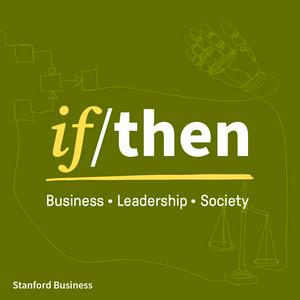Think You Know Yourself? Think Again.
Brian Lowery, the Walter Kenneth Kilpatrick Professor of Organizational Behavior at Stanford Graduate School of Business and the author of Selfless: The Social Creation of You, argues that identity is about much more than external characteristics, family history, or the collection of experiences that compose the chronology of our lives. In fact, Lowery argues, our identities are constantly being formed, shifted, and even co-created — by the people around us. In this episode, Lowery breaks down how leaders, colleagues, and even casual acquaintances influence the people we are continually becoming — and why recognizing this can change our lives and how we experience the people we know. Understanding this social conception of the self helps us effectively navigate challenges at home and in the workplace, strengthen key relationships, and even bridge political divides.“All these constraints that you feel, maybe those are imaginary,” Lowery says. “The world opens to you, I think, if you believe this, but that is also what's terrifying about it. What's exciting is what's terrifying.”Has someone in your life changed how you see yourself? Tell us more at
[email protected] conversation was recorded on November 13, 2024.Related Content:Brian Lowery faculty profileA Provocative Theory of Identity Finds There is No “You” in SelfLet’s Make a Deal: Negotiation Tips from the ExpertsQuick Thinks: How Others Define UsJanet VarneyChapters:(00:00:00) - Improv is a Team Sport(00:04:20) - Rethinking the Self(00:05:16) - Leadership and Influence(00:07:30) - The Leadership Experiment(00:11:55) - Trust in the Workplace(00:14:24) - Polarization and Social Identity(00:18:33) - The Influence of Proximity(00:20:55) - Changing Identities(00:24:38) - ConclusionSee Privacy Policy at https://art19.com/privacy and California Privacy Notice at https://art19.com/privacy#do-not-sell-my-info.
